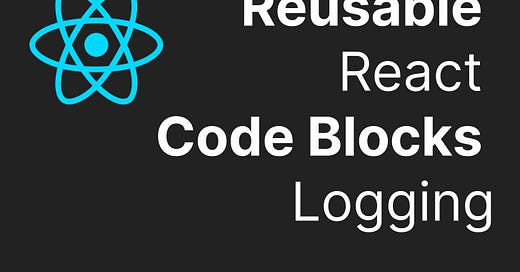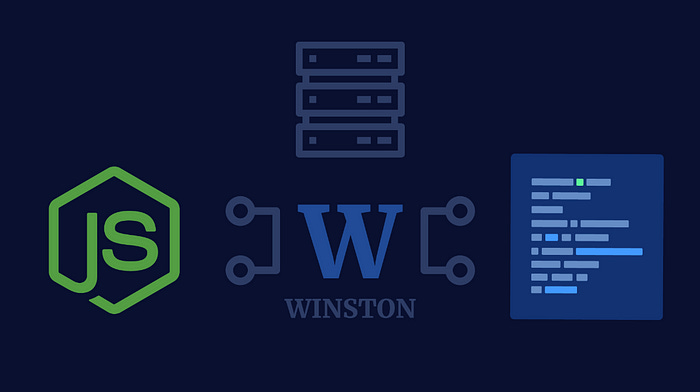Reusable React Code Modules, Part 9 - Logging
Effective Debugging: Implementing Reusable Logging Modules for Better Insights
Logging is essential for tracking application behavior, diagnosing issues, and monitoring performance. Effective logging helps developers maintain and debug applications more efficiently. This guide covers how to structure reusable logging modules in React, manage logs, and integrate logging libraries.
Common Libraries and Tools
Winston
Log4js
LogRocket
Sentry
1. Winston
Winston is a versatile logging library for JavaScript, often used in Node.js applications but also applicable in React projects
Key Features
Multiple transport layers (console, file, HTTP, etc.)
Log levels and custom formats
Asynchronous logging
Integrations with logging services
2. Log4js
Log4js is a logging library inspired by log4j, suitable for JavaScript applications, including React
Key Features
Multiple appenders (console, file, SMTP, etc.)
Flexible configuration
Log categories and levels
Asynchronous logging
3. LogRocket
LogRocket is a front-end logging and session replay service, providing deep insights into user interactions and application performance
Key Features
Session replay
Console logs and network activity capture
Performance monitoring
Integration with issue tracking systems
4. Sentry
Sentry is an error tracking and performance monitoring service, widely used for logging errors and monitoring React applications
Key Features
Real-time error tracking
Performance monitoring
Integrations with various platforms and frameworks
Contextual information and breadcrumbs
Comparison
Winston: Best for versatile and customizable logging solutions, supporting multiple transport layers
Log4js: Ideal for applications needing a flexible logging configuration with various appenders
LogRocket: Suitable for applications requiring session replay and detailed user interaction logs
Sentry: Best for comprehensive error tracking and performance monitoring with extensive integration capabilities
Examples
Example 1: Winston
Setup:
import { createLogger, transports, format } from 'winston';
const logger = createLogger({
level: 'info',
format: format.combine(
format.timestamp(),
format.json()
),
transports: [
new transports.Console(),
new transports.File({ filename: 'app.log' }),
],
});
export default logger;Usage:
import React, { useEffect } from 'react';
import logger from './logger';
const App = () => {
useEffect(() => {
logger.info('App component mounted');
}, []);
return (
<div>
<h1>Logging with Winston</h1>
</div>
);
};
export default App;Example 2: Log4js
Setup:
import log4js from 'log4js';
log4js.configure({
appenders: {
console: { type: 'console' },
file: { type: 'file', filename: 'app.log' },
},
categories: {
default: { appenders: ['console', 'file'], level: 'info' },
},
});
const logger = log4js.getLogger();
export default logger;Usage:
import React, { useEffect } from 'react';
import logger from './logger';
const App = () => {
useEffect(() => {
logger.info('App component mounted');
}, []);
return (
<div>
<h1>Logging with Log4js</h1>
</div>
);
};
export default App;Example 3: LogRocket
Setup:
import LogRocket from 'logrocket';
LogRocket.init('your-app-id');
export default LogRocket;Usage:
import React, { useEffect } from 'react';
import LogRocket from './logrocket';
const App = () => {
useEffect(() => {
LogRocket.log('App component mounted');
}, []);
return (
<div>
<h1>Logging with LogRocket</h1>
</div>
);
};
export default App;Example 4: Sentry
Setup:
import * as Sentry from '@sentry/react';
import { Integrations } from '@sentry/tracing';
Sentry.init({
dsn: 'your-dsn-url',
integrations: [new Integrations.BrowserTracing()],
tracesSampleRate: 1.0,
});
export default Sentry;Usage:
import React, { useEffect } from 'react';
import * as Sentry from './sentry';
const App = () => {
useEffect(() => {
Sentry.captureMessage('App component mounted');
}, []);
return (
<div>
<h1>Logging with Sentry</h1>
</div>
);
};
export default App;








